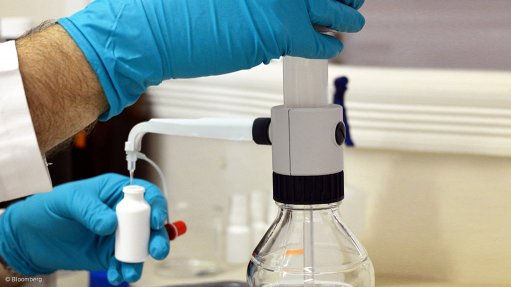
Photo by: Bloomberg
Plans to increase gross domestic expenditure on research and development (GERD) to 1.5% of gross domestic product by 2019 are yet to be formally adopted, despite the target being incorporated in the draft strategic plan of the Department of Science and Technology (DST) and the 2014-2019 Medium-Term Strategic Framework.
“The DST has evaluated the baseline GERD performance and estimated the required level of additional investment to achieve this target under various scenarios.
“The information is being used as part of the consultations with National Treasury to determine the feasibility of some of the proposed actions, especially where additional public funding is needed,” Science and Technology Minister Naledi Pandor said in response to a Parliamentary question last week.
However, under the current scenario, which remained dependent on current funding resources, the DST had planned and was already implementing several strategic actions, including the scaling-up of existing successful programmes to expand the pool of researchers in the country.
This included funding for postgraduate training, the establishment of research chairs and using opportunities for international training arrangements.
The provision of research infrastructure and the coordination of public research institutions to maintain current capabilities for research and innovation was also being prioritised.
The DST was further looking to improve coordination within government with respect to planning, priority-setting and strategic management of public funding for science and technology across government.
“An interdepartmental team has been established between the DST and National Treasury to consider the measures proposed in this regard,” the Minister outlined.
The department also planned to establish international research and development (R&D) partnerships with other countries and international organisations, as well as implement efforts to attract the R&D activities of multinational companies.
“Ongoing engagements to facilitate partnerships between the government and private sector on strategic actions that can encourage increased private sector R&D [are meanwhile ongoing],” Pandor outlined.
Existing measures include the R&D tax incentive; Sector Innovation Funds, which were established to facilitate cofunding of R&D in nine subsectors; the Support Programme for Industrial Innovation; the Technology for Human Resources and Industry Programme; as well as the provision of financial support through the Technology Innovation Agency.